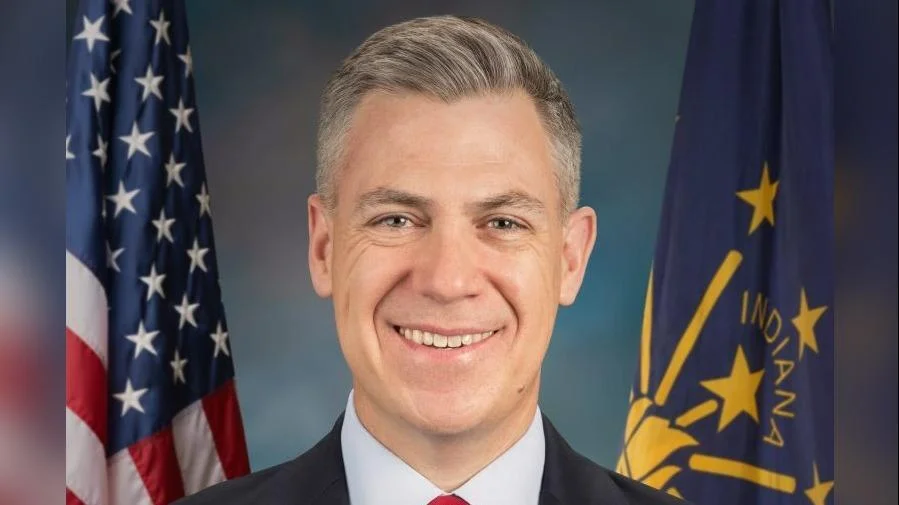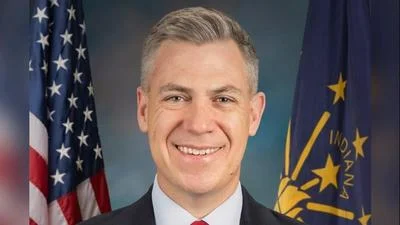Jim Banks, U.S. Senator | https://www.banks.senate.gov/
Jim Banks, U.S. Senator | https://www.banks.senate.gov/
Senator Jim Banks, U.S. Senator from Indiana, posted a series of tweets on October 10, 2025, addressing topics ranging from U.S.-China trade policy to the 2020 Census and federal regulations on gas cans.
In a tweet posted at 12:32 UTC, Banks marked the anniversary of a major trade decision, stating, "Today marks 25 years since Bill Clinton signed PNTR with China into law. Read my @BreitbartNews op-ed on how PNTR with China proved to be one of the worst economic and geopolitical mistakes in American history."
Later that day, at 14:03 UTC, Banks criticized the Biden administration's handling of the 2020 Census, writing, "The Biden admin used a shady “privacy” formula to cook the books on the 2020 Census report and give Democrat states 6 extra seats. We have to fix this. @mattgaetz"
At 14:37 UTC, Banks addressed federal regulations on gas cans, stating, "Only in Washington could they make pouring gas complicated. My Gas Can Freedom Act ends the madness and brings back gas cans that actually work. Read more: https://t.co/0NXwiTke5d https://t.co/C7XFVR6Cl2"
Permanent Normal Trade Relations (PNTR) with China was signed into law by President Bill Clinton in 2000, a move that allowed China to join the World Trade Organization and significantly expanded trade between the two countries. The decision has been a subject of ongoing debate regarding its economic and geopolitical impacts.
The 2020 Census faced scrutiny and legal challenges over its methodology and data privacy measures. Some lawmakers have alleged that adjustments in privacy protocols affected congressional apportionment, though official sources maintain that changes were made to protect individual data.
Federal regulations on portable fuel containers, including gas cans, have been updated over the years to address safety and environmental concerns. Some legislators argue these rules have made everyday tasks more cumbersome for consumers.





 Alerts Sign-up
Alerts Sign-up